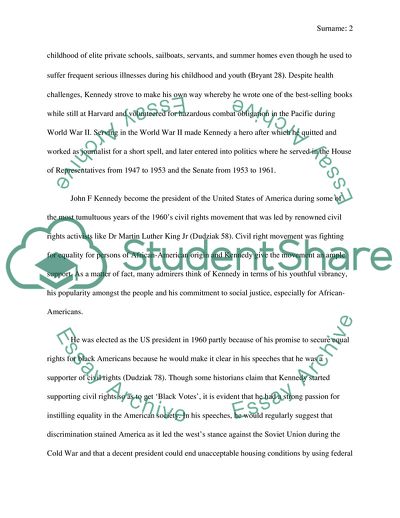Cite this document
(John F Kennedy and His Fight for Social Justice Term Paper, n.d.)
John F Kennedy and His Fight for Social Justice Term Paper. Retrieved from https://studentshare.org/sociology/1834321-fyw2-1
John F Kennedy and His Fight for Social Justice Term Paper. Retrieved from https://studentshare.org/sociology/1834321-fyw2-1
(John F Kennedy and His Fight for Social Justice Term Paper)
John F Kennedy and His Fight for Social Justice Term Paper. https://studentshare.org/sociology/1834321-fyw2-1.
John F Kennedy and His Fight for Social Justice Term Paper. https://studentshare.org/sociology/1834321-fyw2-1.
“John F Kennedy and His Fight for Social Justice Term Paper”. https://studentshare.org/sociology/1834321-fyw2-1.


